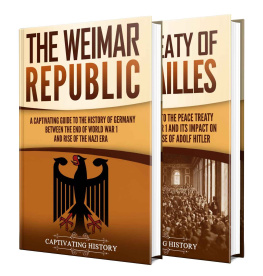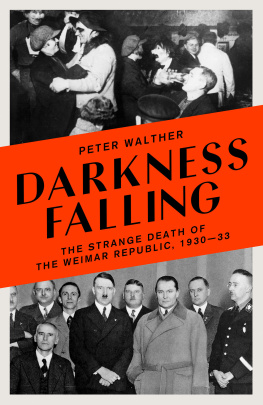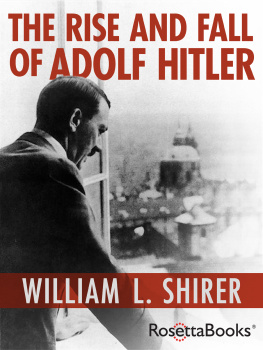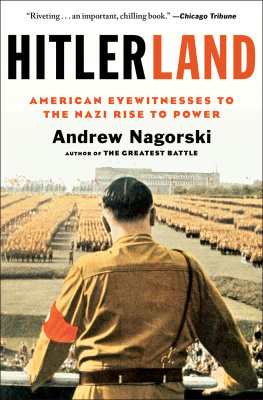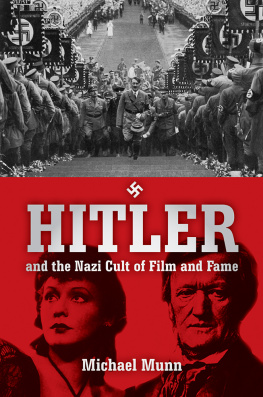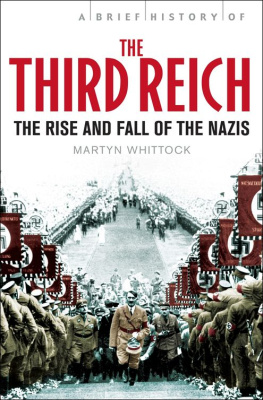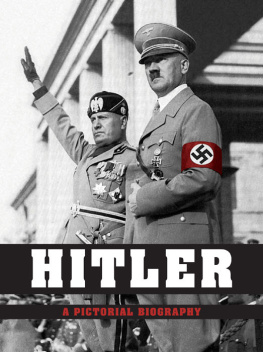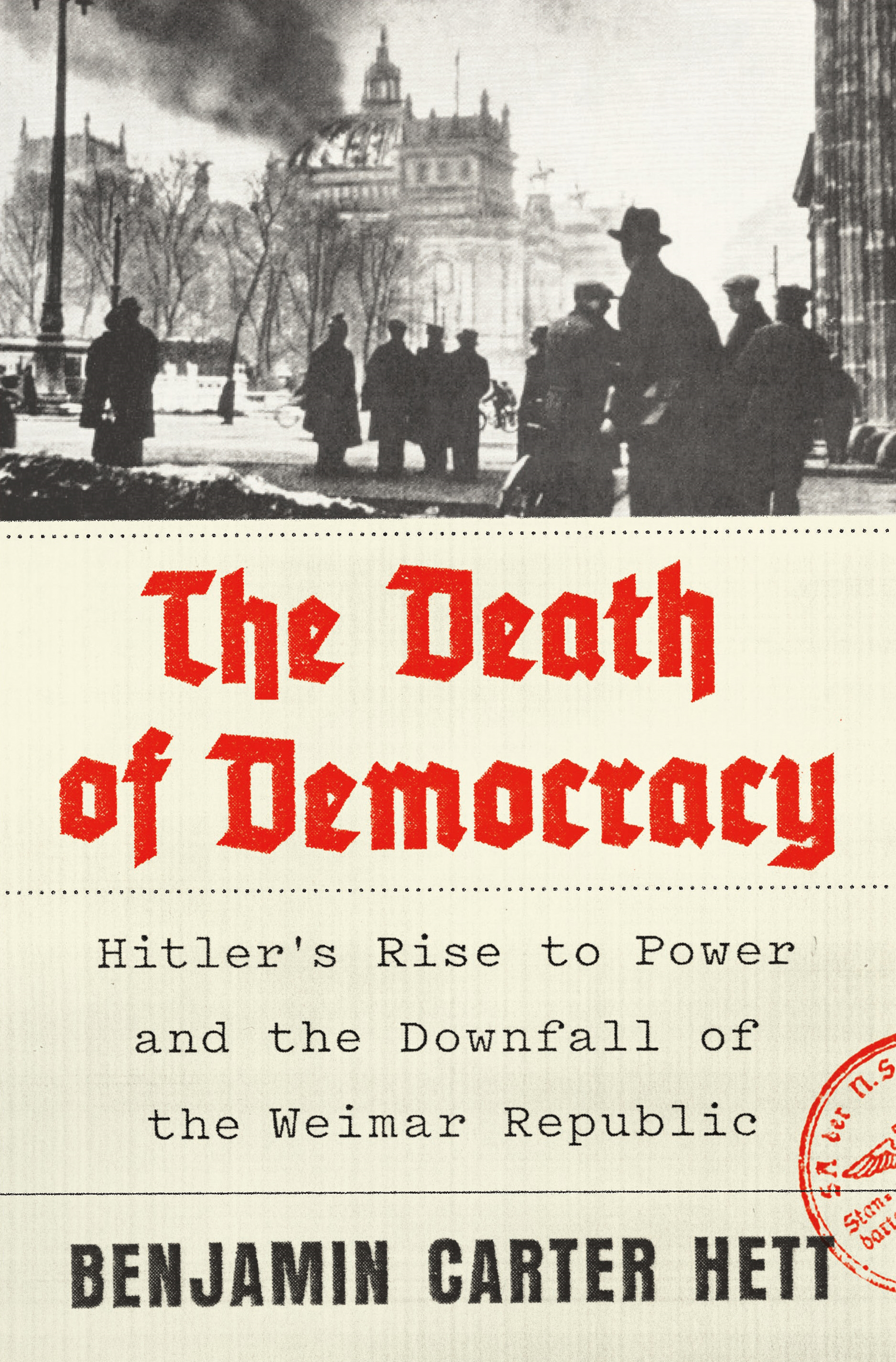Contents
Guide
Pagebreaks of the print version

The author and publisher have provided this e-book to you for your personal use only. You may not make this e-book publicly available in any way. Copyright infringement is against the law. If you believe the copy of this e-book you are reading infringes on the authors copyright, please notify the publisher at: us.macmillanusa.com/piracy.
To everyone who fights for freedom, human rights, democracy, peace, and tolerance.
And the King shall answer and say unto them, Verily I say unto you, Inasmuch as ye have done it unto one of the least of these my brethren, ye have done it unto me.
Matthew 25:40
Prince Max von Baden (18671929): Hereditary prince of the Grand Duchy of Baden and chancellor of the German Reich in October and November 1918.
Max Bauer (18691929): Colonel, artillery expert, and staff officer before and during the First World War. Adviser on politics and economics to General Erich Ludendorff. First author to formulate the stab in the back myth, in early 1919.
Herbert von Bose (18931934): An intelligence officer and conservative activist who became press secretary to Vice-Chancellor Papen in 1933 and 1934.
Otto Braun (18721955): Social Democratic politician and prime minister of Prussia most of the time from 1920 to 1932, and then with limited powers until early 1933.
Aristide Briand (18621932): French politician, prime minister on a number of occasions, and foreign minister from 1925 to 1932. Worked with Gustav Stresemann to bring peace and Franco-German reconciliation.
Heinrich Brning (18851970): One of the leaders of the Catholic Center Party in the Weimar Republic and one of the republics most important statesmen. Chancellor from March 1930 to May 1932.
Rudolf Diels (19001957): A Prussian civil servant, recruited to the police section of the Prussian interior ministry in 1931 to prepare reports on Communist violence. In 1932 he shifted his allegiance, first to Papen and then to the Nazis. Named head of the Prussian secret police, which, by 1933, grew into the Gestapo, he was forced out in the spring of 1934.
Friedrich Ebert (18711925): Leader of the Social Democratic Party of Germany during the First World War. First head of the government after the German Revolution of 1918, or November Revolution, and president of the Weimar Republic from 1919 to 1925.
Andr Franois-Poncet (18871978): French ambassador to Germany from 1931 to 1938.
Wilhelm Frick (18771946): One of the earliest Nazi activists. Interior minister under Hitler from 1933 to 1943.
Joseph Goebbels (18961945): Head of the Nazi Party in Berlin from 1926 to 1945. Propaganda director for the Nazi Party from 1930 and minister of popular enlightenment and propaganda from 1933. A highly talented propagandist and one of the most intelligent of Hitlers inner circle, he is said to be the only one Hitler found a stimulating conversationalist.
Hermann Gring (18931946): One of Hitlers first followers and part of the Nazi inner circle. Speaker of the Reichstag in 1932, and then both Reich minister without portfolio and Prussian interior minister in 1933.
Wilhelm Groener (18671939): A staff officer during the First World War and, in 1918, Erich Ludendorffs replacement as first quartermaster general. Served as defense minister from 1928 to 1932 and also as interior minister from 1931 to 1932. Kurt von Schleicher was his particular protg.
Franz Grtner (18811941): Bavarian politician and member of the German National Peoples Party. Minister of justice in the cabinets of Franz von Papen and Kurt von Schleicher from 1932 to 1933 and then under Hitler until 1941.
Kurt von Hammerstein-Equord (18781943): A senior military officer who was commander in chief of the German Army from 1930 to 1934. An anti-Nazi, he was eventually forced out of his command.
Konrad Heiden (19011966): Social Democratic journalist. Went into exile in France and the United States after 1933 and wrote the first important biography of Hitler.
Wolf-Heinrich Count von Helldorff (18961944): Scion of an aristocratic Saxon family, commander of the Berlin Sturmabteilung, or SA, in 1931, and then police chief of Potsdam (19331935) and Berlin (19351944) under the Nazis. Gravitated toward the resistance as early as 1938, and was executed following the failure of the Valkyrie plot in 1944.
Heinrich Himmler (19001945): Commander of the Schutzstaffel, or SS, starting in 1929, at a time when it was a small corps of bodyguards within the larger SA. Transformed the SS into the most powerful organization in Nazi Germany, one that eventually encompassed all police and security services, some of the armed forces, and some important economic institutions.
Oskar von Hindenburg (18831960): Army officer and son of field marshal and German president Paul von Hindenburg. A friend and regimental comrade of Kurt von Schleicher, Oskar was one of his fathers most influential advisers during the last years of the Weimar Republic. Due to his educational and intellectual limitations, he was known to insiders as the son not foreseen in the constitution.
Paul von Hindenburg (18471934): Career army officer who retired in 1911 but was recalled to service at the outbreak of the First World War. Credited with the crucial victory of the Battle of Tannenberg in 1914, saving East Prussia from Russian invasion. Commander in chief of the German Army from 1916 to 1919. Elected president of the German Reich in 1925 and reelected in 1932. Appointed Adolf Hitler chancellor in January 1933.
Adolf Hitler (18891945): Leader of the National Socialist German Workers Party from 1920 to 1945. Led Beer Hall Putsch in Munich in 1923. Author of Mein Kampf . Chancellor of Germany from 1933 and Chancellor and Fhrer from 1934 to 1945.
Alfred Hugenberg (18651951): Industrialist, media magnate, and leader of the right-wing German National Peoples Party after 1928. Served briefly in Hitlers cabinet in 1933.
Edgar Julius Jung (18941934): Right-wing, young conservative intellectual and political activist. Known for his critique of democracy, The Rule of Inferiors (1927). Speechwriter for Franz von Papen in 1933 and 1934, he was at the heart of the resistance activities run from Papens office.
Erich Ludendorff (18651937): Senior army officer, first quartermaster general of the army from 1916 to 1918. One of the architects of the stab in the back myth, he was the most important theorist of total war and its meaning for a totalitarian state.
Karl Mayr (18831945): Staff officer and immediate superior of Adolf Hitler in 1919. Ordered Hitler to become involved with the German Workers Party.
Otto Meissner (18801953): State secretary in the office of the president under Friedrich Ebert and Paul von Hindenburg, and continuing under Hitler.
Hermann Mller (18761931): Social Democratic politician, chancellor in 1920 and from 1928 to 1930, when he led a great coalition that was the last fully parliamentary government of the Weimar Republic.
Eugen Ott (18891977): Staff officer in the defense ministry under Kurt von Schleicher. In late 1932, he prepared a crucial report on a war game showing that the army would be overwhelmed by a simultaneous Nazi and Communist uprising and a foreign invasion.
Franz von Papen (18791969): Army officer before and during the First World War and Center Party politician. Chancellor in 1932 and vice-chancellor under Hitler in 1933 and 1934. Thereafter, ambassador to Austria and Turkey until 1945.


